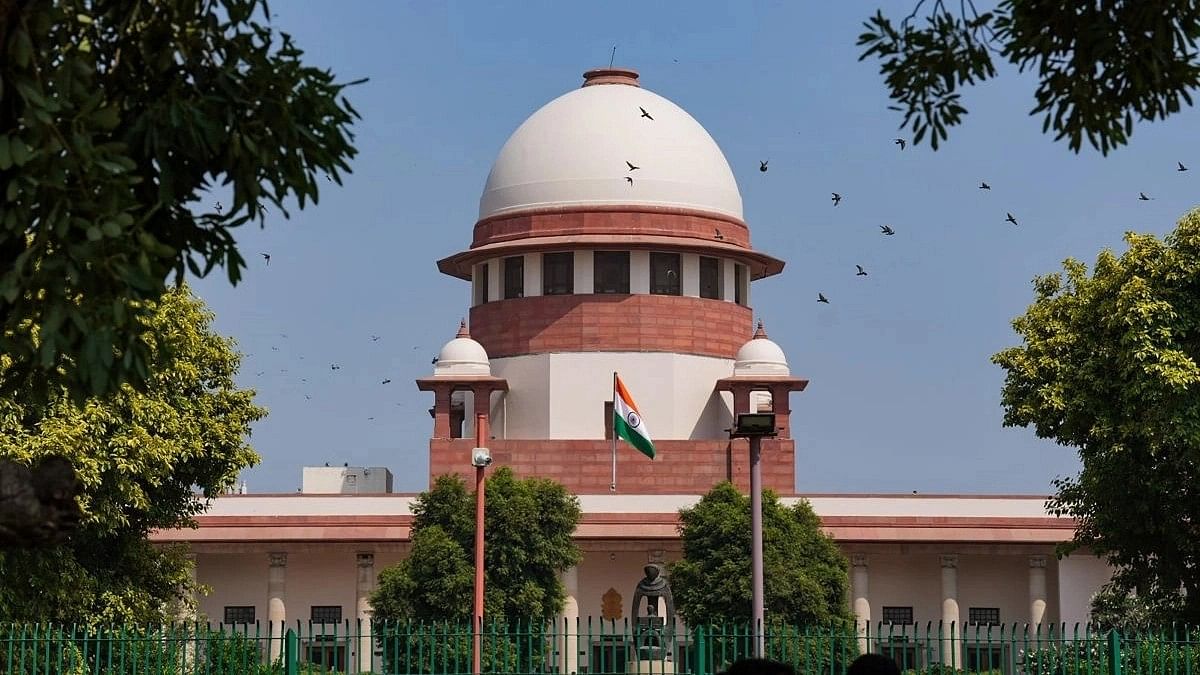
Supreme Court.
Credit: PTI Photo
The Centre on Wednesday told the Supreme Court that it has no intention to touch the special provisions applicable to northeastern states, saying any reference to it during the discussion on the temporary provision of Jammu and Kashmir may have "potential mischief".
Solicitor General Tushar Mehta on behalf of the Union government opposed before a five-judge bench, presided over by Chief Justice of India D Y Chandrachud, a discussion on the impact of abrogation of Article 370 of the Constitution related to the special status to erstwhile state of Jammu and Kashmir.
Following Mehta's statement, the bench, also comprising Justices Sanjay Kishan Kaul, Sanjiv Khanna, B R Gavai, and Surya Kant, told Congress M P and advocate Manish Tewari, representing an intervenor, “You have nothing to say on Article 370. So why should we hear you?”
“Reference to the Constitution bench is confined to Article 370. There is no commonality of interest between the issues which sought to be addressed by the intervenor and the issues raised in the reference to this constitution bench. In any event, a statement which has been made on behalf of the Union government would allay any apprehension in that regard. We therefore close the application which stands disposed of,” the top court said.
During the hearing on a batch of petitions challenging the dilution of the Article 370, Tewari contended that even a slight apprehension in the periphery of India can have serious implications and the court is currently dealing with one such situation in Manipur.
He said Article 370, which applied to J&K, Article 371, the six sub parts which apply to northeast and the sixth schedule of Constitution which applies to Assam, Tripura, Meghalaya, becomes relevant in this matter.
Tewari contended that the interpretation of Article 370 can possibly impact other provisions.
At this juncture, Mehta said “I have instructions to say this. We have to be very responsible….we must understand the temporary provision which is Article 370 and special provisions with regard to other states, including northeast."
He said, "The central government has no intention to touch any part which gives special provision to the northeast and other regions. This submission will have a very potential mischief. Therefore, I am interrupting and making it clear. Let us confine to a temporary provision for J&K, rest are special provisions not temporary provisions”.
He said that there is no apprehension. "Let us not try to create any apprehension," he added.
On this, the bench said, “Why should we deal with it in anticipation or apprehension? We are dealing with a specific provision which is Article 370….we don’t have to expand this ambit on the impact of interpretation will have on other provisions of the Constitution”.
The bench said Article 370 is stated to be a temporary provision and of course, counsel has argued that it is not temporary and Article 371 should not be brought into these proceedings.
The bench further said since the Centre has informed the court that it has no such intent, then why should we apprehend that this is what the government wants to do in other parts of the country.
“I think we should not enter that terrain at all,” the CJI said.
The bench emphasised that let us not move the focus on the northeast now, the apprehension is allayed by the statement made on the behalf of the government.
The bench also pointed at special provisions with respect to the state of Maharashtra and Gujarat.
Referring to written submissions by Tewari, the bench asked him, “You have nothing to say on Article 370. So why should we hear you….you have not formulated anything in your submission on Article 370 ?”
The top court noted Mehta’s submissions that Centre has absolutely no intent to touch any of the special provisions applicable to the northeast or any other part of India.
